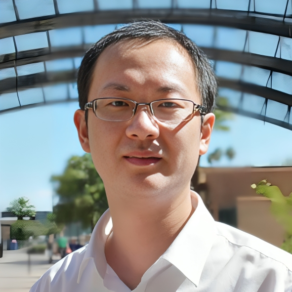
Elena Giusarma
[introductory/intermediate] Machine Learning at the Frontier of Astrophysics: Simulating the Universe
Summary
This course provides an introduction to the fundamental concepts of machine learning and its applications in accelerating and enhancing scientific simulations, with a particular focus on astrophysical and cosmological challenges. Participants will begin with an overview of classical statistical methods, including Bayesian inference and regression techniques, before progressing to supervised learning approaches, as well as unsupervised learning methods.
The course showcases practical applications of data and includes discussions on real-world case studies in astrophysics, highlighting cutting-edge developments. Participants will gain foundational knowledge of machine learning, statistical methods, and their use in data-driven models, with a strong focus on real-world applications in astrophysics.
Syllabus
- Overview of key machine learning concepts, with a focus on their relevance and transformative applications in astrophysical research.
- Foundations of Statistical Methods: Fundamentals of Bayesian inference, regression techniques, and statistical tools essential for analyzing and interpreting astrophysical data.
- Supervised and Unsupervised Learning Techniques: Exploration of supervised methods (e.g., Support Vector Machines, decision trees, neural networks) and unsupervised approaches (e.g., clustering, dimensionality reduction) applied to astrophysical challenges.
- Discussion of real-world case studies in astrophysics, highlighting cutting-edge developments such as generative models and their transformative impact.
References
Statistics, Data Mining and Machine Learning in Astronomy, Princeton series in modern observational astronomy, Z. Ievizic, A. J. Connolly, J.T. VanderPlas and A. Gray.
Machine Learning for Physics and Astronomy, Viviana Acquaviva, Princeton University Press.
Kaushal, N., Villaescusa-Navarro, F., Giusarma, E., Li, Y., Hawry, C., Reyes, M., NECOLA: Toward a Universal Field-level Cosmological Emulator. Astrophysical Journal 930(2), 2021.
Sether, T., Giusarma, E., Reyes Hurtado, M., Probabilistic Galaxy Field Generation with Diffusion Models, Workshop at the 38th conference on Neural Information Processing Systems (NeurIPS 2024).
Pre-requisites
Basic programming concepts. A foundational understanding of linear algebra, calculus, and basic probability and statistics is also recommended.
Short bio
Elena Giusarma is an Assistant Professor of Astrophysics at Michigan Technological University. She earned a Ph.D. in Physics from the University of Valencia, focusing on cosmological constraints on neutrino masses, followed by a fellowship at the National Institute for Nuclear Physics (INFN) in Rome, where she contributed to the Planck Collaboration. She held postdoctoral positions at Carnegie Mellon University, was a visiting scholar at UC Berkeley and Lawrence Berkeley National Laboratory, and served as a Flatiron Fellow at the Center for Computational Astrophysics (CCA) in New York, applying machine learning to study neutrino effects on large-scale structure. Currently, her research focuses on leveraging machine learning techniques to accelerate astrophysical simulations and uncover new insights into dark energy and dark matter. She has authored a significant number of highly cited publications in leading astrophysics and cosmology journals. She actively collaborates with international groups and projects, including CAMELS and CosmoVerse, to develop cutting-edge tools for cosmological analysis. In addition, she has taught several courses that bridge astrophysics and machine learning, sharing her expertise with students and researchers across disciplines.


















